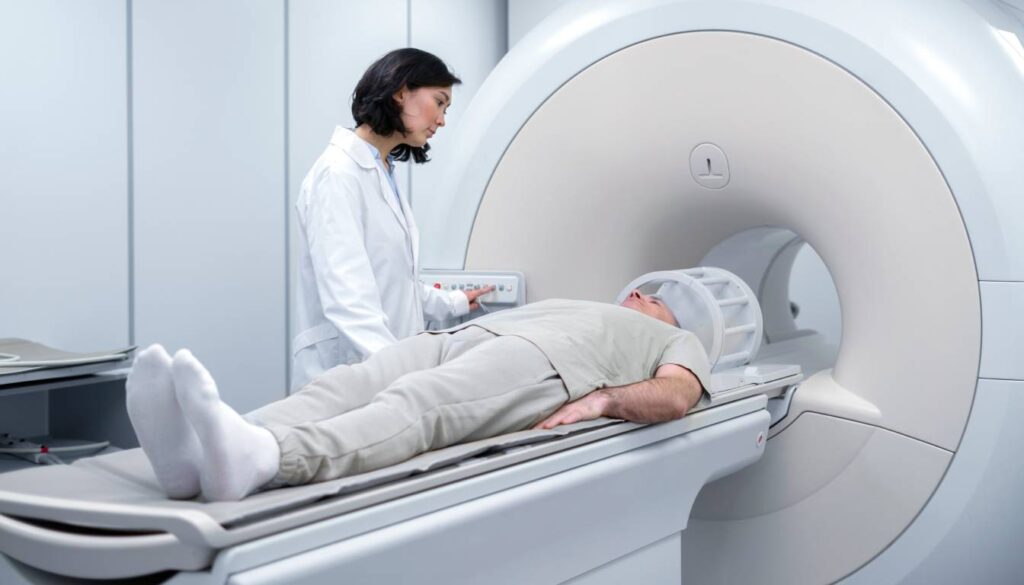Alzheimer’s disease is more than just a medical diagnosis; it’s a life-altering journey that touches millions of families worldwide. Having seen firsthand the toll it takes, I understand how important it is to grasp the full scope of its effects. From memory decline to shifts in personality and behavior, Alzheimer’s transforms lives in profound and often challenging ways. That’s why exploring Alzheimer’s disease nutrition tips for brain health becomes so essential; the right foods and nutrients can support cognitive function and offer families practical ways to strengthen resilience against the disease’s impact.
But knowledge is power. By exploring the latest research, treatment options, and support strategies, we can equip ourselves to face this challenge head-on. Whether you’re a caregiver, a family member, or just someone looking to learn more, understanding Alzheimer’s can help foster compassion and resilience. Join me as we delve into the realities of this disease and uncover ways to navigate its challenges together.
Overview Of Alzheimer’s Disease
Alzheimer’s disease affects millions of people around the world. It causes memory loss, confusion, and changes in behavior. In the early stages, individuals might forget recent conversations or misplace items frequently. As the disease progresses, daily tasks become more challenging.
Symptoms vary from person to person. For instance, some may struggle with language, while others face difficulty recognizing loved ones. This variation highlights the unique nature of the disease. Research shows that Alzheimer’s has several risk factors. Age is a significant factor, with most cases occurring in individuals over 65. Genetics can play a role as well, especially if family members have experienced similar issues.
Additionally, lifestyle choices, like diet and exercise, contribute to brain health too. Diagnosis involves several steps. Doctors conduct physical exams, cognitive tests, and brain imaging. Together, these assessments help differentiate Alzheimer’s from other types of dementia.
Currently, there’s no cure for Alzheimer’s. However, various treatments focus on managing symptoms. Medications can help improve memory and cognitive function, while therapy supports emotional well-being.
Support is crucial for both patients and caregivers. Many resources are available, including support groups and educational materials. These tools help families navigate the difficulties associated with the disease.
Understanding Alzheimer’s promotes empathy and awareness. I encourage everyone to learn more about the condition. The impact is profound, but knowledge empowers us to face the challenges together.
Symptoms And Stages – Alzheimer’s Disease: Nutrition Tips for Brain Health
Alzheimer’s disease manifests through various symptoms that progress through distinct stages. Therefore, early detection offers the best chance for effective management.
Alzheimer’s Disease Early Signs
Early signs of Alzheimer’s include memory loss, especially short-term memory. I might forget recent events or misplace items frequently. Confusion often arises when I struggle to follow conversations or keep track of time. Changes in mood and behavior, like sudden irritability or withdrawal, may also become noticeable. These symptoms can be subtle. Thus, recognizing them early aids in seeking help.
Advanced Stages
In advanced stages, symptoms intensify. I may experience significant memory loss, forgetting names of loved ones or even my own identity. Daily tasks become challenging; simple routines feel overwhelming. Communication often deteriorates. I might struggle to find words or understand others. Behavioral changes can escalate, leading to increased agitation or restlessness. I could also lose the ability to recognize familiar places or faces. As a result, safety becomes a significant concern at this stage. Constant supervision often proves necessary.
Causes And Risk Factors
Alzheimer’s disease has various causes and risk factors, including genetic and environmental elements. By understanding these, I can comprehend my risk and manage my health better.
Genetic Factors – Alzheimer’s Disease: Nutrition Tips for Brain Health
Genetics play a significant role in Alzheimer’s disease. If someone in my family has had Alzheimer’s, my risk increases. The most well-known gene linked to Alzheimer’s is the APOE-e4 gene. People with one copy of this gene face a higher risk, while those with two copies have an even greater chance of developing the disease. Not everyone with a family history will develop Alzheimer’s, and many without any family history still experience it. Genetics isn’t the only player in this game.
Environmental Influences
Various environmental factors can also increase the risk of Alzheimer’s. For instance, air pollution and exposure to toxins could contribute to cognitive decline. Additionally, lifestyle choices like diet, exercise, and social engagement play a role. Staying active and maintaining a balanced diet can lower the risk. Engaging in social activities keeps the mind sharp. In short, a clean environment and a healthy lifestyle could help keep my brain on the right track.
Diagnosis And Assessment – Alzheimer’s Disease: Nutrition Tips for Brain Health

Diagnosing Alzheimer’s disease involves careful evaluations. Clinicians use various tests and assessments to identify the condition accurately.
Diagnostic Tests
Doctors rely on diagnostic tests to gather valuable information. To begin, they may perform blood tests to rule out other conditions. Brain imaging studies, like MRI or CT scans, help visualize brain structure and identify abnormalities. In addition, cognitive tests assess memory, problem-solving, and language skills. These tests range from simple word recall tasks to more complex puzzles. I often find that these tests reveal important details.
Clinical Evaluation
A thorough clinical evaluation is key. Healthcare providers conduct interviews to gather medical history. Often, family members provide insights into behavioral changes and memory loss. It’s helpful when they share specific examples of observed symptoms. Each detail adds to the understanding of the patient’s experience. Furthermore, doctors may also perform physical exams to assess overall health. Recognizing other health issues helps tailor treatment plans effectively. This collaborative approach streamlines the diagnosis process.
With accurate diagnosis and assessment, healthcare teams can better support those affected by Alzheimer’s. My focus remains on ensuring the process is clear and informative for patients and families alike.
Treatment Options
Alzheimer’s disease treatment focuses on managing symptoms and improving quality of life. Therefore, it’s important to consider both medications and lifestyle changes.
Medications – Alzheimer’s Disease: Nutrition Tips for Brain Health
Several medications help manage Alzheimer’s symptoms. Cholinesterase inhibitors, like Donepezil and Rivastigmine, boost levels of a neurotransmitter that aids memory and learning. As a result, these drugs may slow symptom progression in some patients. Memantine, another option, helps regulate glutamate, which is linked to learning and memory. Doctors often prescribe medications based on individual needs and responses. However, monitoring is key, as these treatments can cause side effects.
Lifestyle Interventions
Engaging in healthy lifestyle changes can support brain health. Regular exercise gets the blood flowing and benefits overall well-being. Studies show that aerobic activities improve cognitive function. Eating a balanced diet rich in fruits, vegetables, and whole grains also promotes brain health.
Moreover, staying socially active keeps the mind engaged and reduces feelings of isolation. Engaging in puzzles or reading stimulates cognitive function. Mindfulness techniques and relaxation practices like yoga can help manage stress, which benefits everyone, especially those dealing with Alzheimer’s. Ultimately, balancing medications with these lifestyle choices creates a holistic approach to care.
Before You Go – Alzheimer’s Disease: Nutrition Tips for Brain Health

Alzheimer’s disease is a complex condition that affects not just those diagnosed but their families and caregivers as well. Understanding its intricacies can empower us to navigate the challenges it presents. I’ve found that staying informed about the latest research and treatment options is crucial.
Support systems and resources play a vital role in managing this disease. By fostering awareness and encouraging open discussions, we can create a more supportive environment for those impacted by Alzheimer’s. Together, we can face the difficulties head-on, ensuring that no one has to walk this journey alone.
Don’t forget to add theherbprof.com homepage to your favorites so you don’t miss out on future articles!
References – Alzheimer’s Disease: Nutrition Tips for Brain Health
Little Herb Encyclopedia, by Jack Ritchason; N.D., Woodland Publishing Incorporated, 1995
The Ultimate Healing System, Course Manual, Copyright 1985, Don Lepore
Planetary Herbology, Michael Tierra, C.A., N.D., Lotus Press, 1988
Handbook of Medicinal Herbs, by James A. Duke, Pub. CRP Second Edition 2007
The Complete Medicinal Herbal, by Penelope Ody, Published by Dorling Kindersley
Check the Following Articles
Herbal NOW Cholesterol Pro™ with Bergamonte™
Olive Leaf Extract Benefits: A Comprehensive Overview
Naturopathic Medicine: A Guide to Natural Health Solutions
Take Back Time: How to Reverse Premature Aging Naturally
Check the Following Categories
Frequently Asked Questions – Alzheimer’s Disease: Nutrition Tips for Brain Health
What is Alzheimer’s disease?
Alzheimer’s disease is a progressive neurological disorder that causes memory loss, confusion, and behavioral changes. It primarily affects older adults and is the most common cause of dementia, impacting millions worldwide. Symptoms vary per individual, making early detection and understanding crucial for managing the condition effectively.
What are the early signs of Alzheimer’s?
Early signs of Alzheimer’s include short-term memory loss, confusion, difficulty with language, and noticeable changes in mood or behavior. Recognizing these symptoms early can lead to timely diagnosis and better management of the disease as it progresses.
How is Alzheimer’s diagnosed?
Diagnosis of Alzheimer’s involves physical exams, cognitive tests, and brain imaging. Clinicians use medical history, blood tests, and imaging studies like MRI or CT scans to rule out other conditions and assess memory and cognitive functions, ensuring tailored treatment plans.
What are the treatment options for Alzheimer’s?
While there is no cure for Alzheimer’s, treatments aim to manage symptoms and improve quality of life. Medications like cholinesterase inhibitors and Memantine are commonly used, along with lifestyle changes such as exercise, a balanced diet, and social engagement to promote brain health.
What risk factors are associated with Alzheimer’s disease?
Key risk factors for Alzheimer’s include age, genetics, and lifestyle choices. The APOE-e4 gene raises the risk, but not everyone with a family history develops the disease. Environmental influences, such as pollution and toxins, and maintaining a healthy lifestyle can also affect cognitive health.
How can caregivers support individuals with Alzheimer’s?
Caregivers can support individuals with Alzheimer’s by providing emotional support, creating a safe environment, and engaging in meaningful activities. Utilizing resources like support groups and educational materials can help caregivers manage their challenges while promoting patient well-being.
